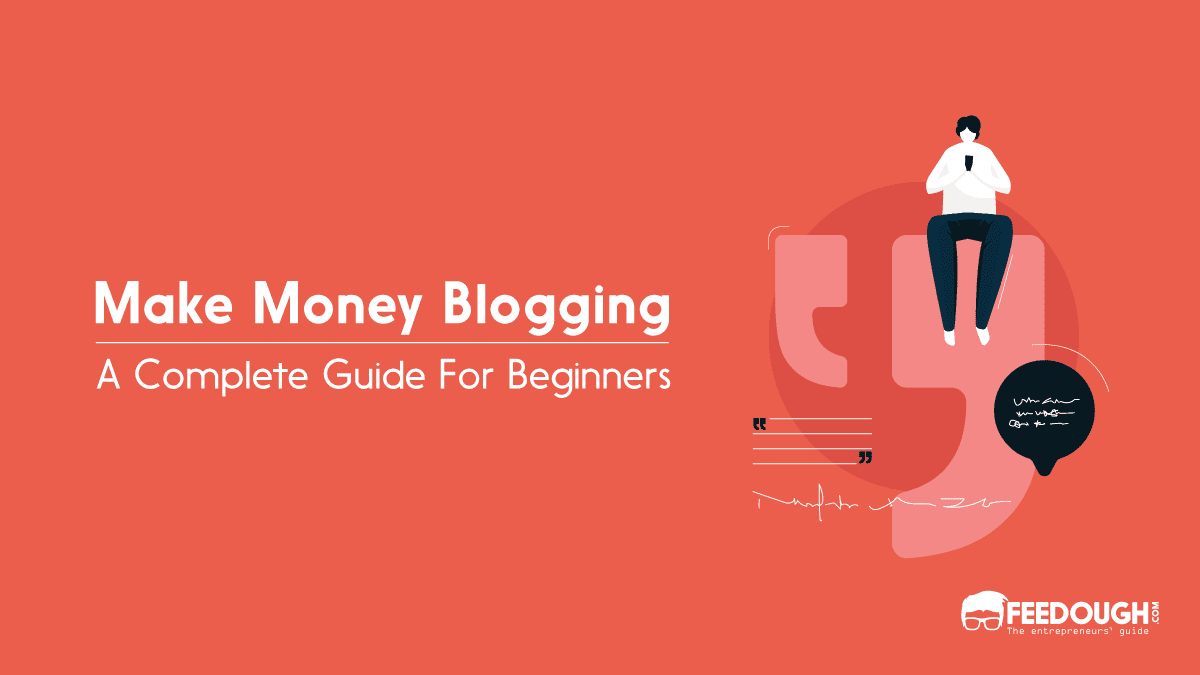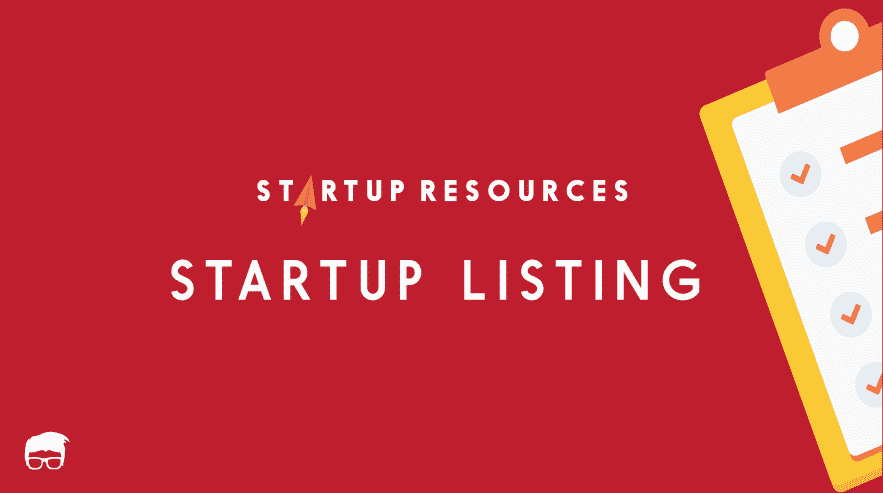Running a startup is hard enough without worrying about things like marketing and promotion. You need to be able to focus on your product and ensure it is the best it can be. But how do you get customers to know about your product? How do you let them know that it exists?
Google the same questions, and you will get a lot of different answers. Some people say that you should focus on paid advertising, like Google Adwords. Others say you should try to get featured on popular blogs or in the news.
There is no one answer that fits all startups, but there is one thing that nearly every successful startup has done: they have started a blog.
If you think your startup’s blog is only for pushing updates and company news, you are completely mistaken. In fact, a blog can be one of the most effective inbound marketing tools in your startup’s arsenal.
In simple terms, your startup blog becomes a platform to attract customers (i.e., inbound marketing) rather than you having to go out and find them (i.e., outbound marketing).
For those who are still in the dark about startup blogs, below is a quick guide on everything you need to know, from why you should start one to how it can help your business.
Why Should Your Startup Have A Blog?
Let’s get into your customer’s shoes and imagine their buying journey.
- The first stage of this journey is when they become aware of their problem. For example, their best friend complains to them about their yellow teeth.
- The second stage is when they start searching for a solution to this problem. In our case, they would search for something like “how to get whiter teeth.” This is one touchpoint that you can use your blog to attract them. If you have a startup blog that ranks high in search engines for this keyword, then you have a chance of getting this customer at the top of your funnel.
- The third stage is when they compare different solutions and start to educate themselves on the topic. At this stage, your blog can help you by providing in-depth content that compares your product to other solutions on the market.
- The fourth stage is when they make a decision and purchase a product. If your blog provides helpful content at each stage of their journey, then they are more likely to purchase your product over other options as they already know, like, and trust your brand.
Besides this, a blog can also help to:
- Get high website authority for SEO: By writing helpful and keyword-rich blog posts, you can increase your website’s authority by getting other websites to link back to your blog. This will help you rank higher in search engine results pages, which can lead to more website visitors.
- Generate leads: You can also convert website visitors into leads by having a lead capture form on your blog. By offering something valuable in exchange for their contact information (an ebook for example), you can add them to your sales funnel and eventually turn them into paying customers.
- Increase brand awareness: A blog is also a great way to increase brand awareness as it gives you a platform to share your brand story and connect with your target audience.
- Establish your brand as a thought leader: If you produce high-quality, informative, and original content, it will position your brand as an opinion leader in your industry. This helps you attract more customers and sales as they will see you as an expert in your field.
- Educate your customers: You can even educate your customers to make more informed decisions about your products or services through your blog content. This will not only help improve customer satisfaction but can also lead to more sales if done correctly.
- Fulfill long-term goals: A startup blog can also help you achieve long-term business goals such as building relationships with customers, establishing trust, and creating a community around your brand.
- Earn additional revenue: Though not recommended, but If you have a successful blog with a lot of traffic, you can even generate additional revenue through advertising or sponsored posts.
- Attract funding: Having a blog increases the chance of investors in your niche stumbling upon your startup and making you appear more credible.
How To Start A Startup Blog?
Fortunately, starting a blog for your startup isn’t as complicated as starting another company. Yes, it does require some effort on your part, but it’s not rocket science. The best thing to do is to either hire someone to do it for you or outsource the content development process.
But for starters, here’s how you have set things up:
The Technicalities
You need a CMS or content management system to get started. A CMS is software that helps you create, edit, publish, and manage your blog content. The most popular ones are WordPress, Ghost, and Medium.
Choose WordPress if:
- You want a self-hosted solution, which means you have more control over your content and can monetize your blog if you wish to. This is the most popular option for businesses.
- You need to create a complex blog with lots of features; WordPress allows you to do that with the help of plugins.
Choose Ghost if:
- A self-hosted platform specifically designed for bloggers who want a simple and elegant solution with a focus on writing.
- An auto-optimised solution that runs quickly and smoothly.
Choose Medium if:
- You want a simple way to get started with blogging without having to worry about hosting or design. All you need to do is sign up and start writing.
- You’re looking for a community of like-minded people to read and share your content.
Hosting Your Blog
This is the part where you need to make a decision between:
- Self-hosting or going with a managed platform
- Hosting it on a subdomain or subdirectory
I suggest you go with a managed platform like Medium, Ghost, or even Wordpress.com (self-hosted WordPress), unless you are technically sound and have someone on your team who can manage the hosting part for you. These platforms will take care of hosting, design, scalability, updates, and security for you so that you can focus on writing quality content. Regarding the choice between a subdomain or subdirectory, always choose a subdirectory.
Subdomains are entirely different websites in the eyes of Google and will require you to start your SEO efforts from scratch.
But websites linking to your subdirectory automatically adds authority and trust to your website, which is great for SEO.
What Should You Blog About?
The most important thing you need to remember is that your startup blog is more for your audience than you.
That’s why the first step in deciding what to blog about is understanding your target audience, their needs, and interests. Combine the same with your industry/vertical and you’ll quickly get some ideas of great topics to blog about.
Answer Questions Related To Customer Journey
The best blog topics are the ones that actually solve a problem your target audience is facing. You can discover these problems by going through your customer’s journey with them.
For example, someone who recently got interested in skateboards might be Googling “what size skateboard deck should I get?” or “how to ollie on a skateboard?” As a result, blog posts with titles like these would do well:
“What Size Skateboard Deck Should I Get? A Beginner’s Guide”, “How to Ollie on a Skateboard: The Ultimate Guide”, etc.
Remember, your goal is to help your target audience, so make sure your blog posts’ content is helpful and informative. No one wants to read a salesy blog post, so avoid that.
Write About Most Discussed Topics On Forums
Forums like Reddit and Quora are great ways to see what topics people in your niche are discussing. Do a quick search on Google for forums in your niche, and take a look at the most popular topics people are discussing.
Chances are, these are the same topics people are interested in reading about on blogs. As a result, you can use these topics as ideas for your own blog posts.
In addition to forums, you can also do this with social media groups. Simply join a few groups in your niche on Facebook or LinkedIn, and see what topics people are talking about.
This is a great way to develop blog post ideas that are proven popular in your niche.
Use Keyword Research to Find Popular Topics
In addition to finding popular topics manually, you can also use keyword research tools to find popular topics that people are searching for online.
There are a number of different keyword research tools you can use for this, but my personal favorite is Google Keyword Planner. It’s free to use, and it’s pretty accurate. Besides this, you can even use Semrush, KWFinder, and other such tools.
All you need to do is type in a seed keyword related to your niche, and the tools will give you a list of popular keywords that people are searching for.
For example, if you’re in the fitness niche, you might enter in keyword phrases like “fitness”, “workout routines”, and “exercise programs”, and these tools will give you a list of similar keywords that people are searching for.
Writing Your Blog Posts
This is where a lot of people get stuck. They have ideas, but they either lack the time or the writing skills to put their ideas into words.
If you’re facing a similar issue, don’t worry – there are a few ways you can get around it.
- Hire writers: If you have the budget for it, you can hire writers to do the job for you. This is probably the quickest and easiest way to get high-quality blog posts, but it’s also the most expensive.
- Get writers from freelance marketplaces: If you don’t want to or can’t afford to hire a full-time writer, you can get writers from freelance marketplaces like Upwork, Fiverr, and Freelancer.com. The quality and charges of the writers on these platforms varies widely, so take your time to find a good one. The best way to do this is to look at their samples, reviews, and ratings.
- Hire an agency: You can also hire an agency that specializes in creating content for startups. For example, if you’re operating in a travel niche, you can hire agencies like Copypress to help you with your travel-based content marketing. This is a good option if you have the budget for it.
- Get bloggers from your niche to write for you: This is a great way to get high-quality content for your blog. You can reach out to popular bloggers in your niche and see if they’re interested in writing a guest post for your blog. This will not only help you get good content, but also help you get some exposure from the blogger’s audience.
- Use AI tools: AI tools like Jasper, Frase, and Copy.ai can help you generate content for your blog. While they can’t replace human writers, they are great in increasing your blog’s productivity.
How To Grow Your Startup Blog traffic
Just posting great content on your blog isn’t enough. You also need to make sure that people are actually reading it. Here are some tips on how you can increase traffic to your startup’s blog:
Submit your blog to directories: This will help people find your blog easily.
- Optimise for SEO: Use relevant keywords in your blog posts and title so that your blog comes up when people search for those keywords on Google. Not just keywords, also make sure that your blog’s speed is good and that it is mobile-friendly.
- Share your content on social media: Use Twitter, Facebook, and other social media platforms to share your blog content with a wider audience.
- Do guest posting: Reach out to other bloggers in your industry and offer to write a guest post for their blog. This will not only help you get exposure to a new audience but you can get backlinks to your own blog, which will help with your SEO.
- Improve the UX: Google pays attention to how easy it is for users to use your website and find the information they’re looking for. Ensure your blog is well-designed and easy to navigate so that people will stick around and read your content.
- Keep your blog alive: Search engines will index your blog more often if you publish new content regularly. Shoot for at least once a week, but the more often you can publish new posts, the better.
Bottom-Line?
Your startup’s blog can be a powerful tool to help you get more sales and exposure. Make sure you develop a blog for your customers, not your company or search engines. Write quality content that’s helpful and informative, and design your blog with your users’ experience in mind.
Also, do make decisions by considering blog to be the top-of-the-funnel marketing channel. This means that blog should be used to attract readers and bring them in the marketing funnel.
Go On, Tell Us What You Think!
Did we miss something? Come on! Tell us what you think about our article on Developing Your Startup’s Blog in the comments section.
A startup consultant, digital marketer, traveller, and philomath. Aashish has worked with over 20 startups and successfully helped them ideate, raise money, and succeed. When not working, he can be found hiking, camping, and stargazing.



![AI FAQ Generator [Unlimited & No Login] FAQ Generator](https://www.feedough.com/wp-content/uploads/2024/04/Copy-of-Cover-images-5-1-150x150.webp)





